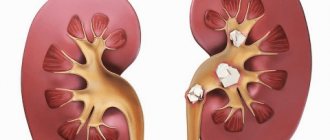Home » Treatment of alcoholism in Moscow » Coding for alcoholism » Coding for alcoholism with hypnosis
Hypnosis is a special state of consciousness in which the human brain is between sleep and wakefulness. During this period, a person can see vivid images, his ability to perceive and assimilate information changes.
Hypnosuggestive coding methods , as a prohibitive therapy for the treatment of alcohol dependence, are widely used in drug treatment practice.
One session of hypnotherapy is enough to develop a persistent aversion to alcohol in a patient with high suggestive sensitivity. The hypnosis coding procedure can be carried out both in a hospital setting and at the patient’s home.
| Name of service | Price |
| Coding with hypnosis in a hospital | from 6,000 rub. |
| Hypnosis coding with a visit to the patient’s home | from 6,000 rub. |
Pros of coding using hypnosis
Indications and contraindications
Treatment of alcoholism with hypnosis is a long-established practice that gives good results. The key to success, as with most other methods, is the patient’s desire to get rid of addiction. Hypnosis helps a person find support in this struggle in his internal reserves. With this method, the patient’s craving for alcohol disappears, there is no anger and there is a greater chance of full recovery.
Cost of services
| CODING FROM ALCOHOLISM |
| CODING WITH HYPNOSIS | |
| Coding using the Dovzhenko method | 8000 rub. |
| Ericksonian hypnosis | 8000 rub. |
| Hypno-chemical effects | 9000 rub. |
| DISCOUNTS and PROMOTIONS | |
| Repeated appeal | 5% |
| Disabled people | 10% |
| Combatants | 5% |
| Large families | 10% |
| Card holders | 10% |
Please note that this price list does not provide a complete list of the Clinic’s services. You can find the full price list on this page: “Our prices”. You can also call for any service by phone 8 (495) 142-59-03
What is anchor hypnosis and how does it work?
In some cases, the patient is better helped by direct hypnosis with instillation of aversion to alcohol. In others, anchor hypnosis works well. It is based on the principles of neurolinguistic programming. This is a gentle, non-violent practice. Many patients are afraid that the doctor will “get into their head.” In this case, any fears are groundless, because the impact is based on three “pillars”:
- the patient’s desire to get rid of addiction;
- relying on strong personal impressions;
- individual approach.
The specialist, with the help of the patient, finds an “anchor” in his past - a strong memory with a negative connotation. Then, with the help of hypnosis (light trance without complete immersion), this impression is associated with the idea of alcohol. In the future, alcohol causes negative emotions in a person and the desire to drink disappears.
What circumstances are taken into account when treating alcoholism?
As the classic of world literature M. Twain wrote: “If a captain sets the same sail in different winds, his ship is doomed.” This clearly illustrates the need for an individual approach when conducting a rehabilitation complex and providing psychotherapeutic assistance.
Almost every person with alcohol addiction believes that he has enough will and fortitude to give up alcohol at any time. In his mind, problems at work and in the family, debts and negative attitudes from others are not serious difficulties.
Alcoholics do not understand that they are in a difficult situation, so they cannot correctly use the advice of doctors and loved ones. After all, you can always meet with friends and drinking buddies, “wash away” all your sorrows and have a good time, and if any doubts arise, you can again “take a drink” of the saving bottle.
It is the quality work of a psychologist with the conscious and subconscious that helps stimulate a person to make a vital decision. If a person refuses alcohol under pressure, this can lead to a breakdown, a return to the addiction and even aggravation of the situation, which can become fatal.
Suggestion
Psychosuggestive techniques are based on suggestion. One of the most famous is the Dovzhenko method. This type of hypnosis is highly effective and includes several stages of influence. The first is an explanation of the harm of alcohol, then a direct session of suggestion under hypnosis.
In a trance state, a person better perceives the attitudes suggested by the doctor. This is the idea that alcohol destroys, interferes with normal life, and harms a person. All these attitudes are natural, they are consistent with the natural desire to live normally.
After completing the session, the person loses his attachment to alcohol. Alcohol makes him dislike, the desire to drink disappears.
Suggestive method
This coding method is based on the use of suggestive techniques.
These include, for example, the Dovzhenko method. Treatment in this case is carried out in several stages and is highly effective. First, the doctor explains to the patient what harm systematic alcohol consumption causes to the body. After this, he conducts a hypnotic session. A person in a state of hypnosis is more susceptible to the attitudes suggested by the doctor. After the session, he loses the desire to drink, and alcohol itself begins to cause persistent hostility.
Ericksonian hypnosis
Ericksonian hypnosis is gentler than traditional techniques. A person is not completely immersed in a trance, he perceives his surroundings. At the same time, the patient is relaxed and calm. What the doctor says is perceived as the patient's own thoughts. It is important to study the patient in order to find support for the suggested ideas in the person’s personal experiences and beliefs.
The effect of hypnosis treatment is noticeable after the first session. In complex cases, 10-15 meetings with a specialist may be required. Remission occurs for several years. At the end of the coding period, the settings must be updated. Your own will weakens over time and the attraction to alcohol may reappear.
General information about hypnosis for drunkenness
Hypnotic influence can change a person’s inner world, correct his attitude towards various things and his own actions.
In drug treatment practice, it is used to change the psyche of alcoholics and drug addicts, to set them up to lead a healthy lifestyle, to form correct and promising attitudes and goals. It is not for nothing that the method of hypnosis against alcoholism has become an official psychotherapeutic tool. It allows you to achieve excellent therapeutic results. In more than 80% of cases, after hypnotherapy, alcohol addicts become sober. This is an excellent indicator.
It is important to understand that practice can only cure those people who are hypnotizable, that is, susceptible to suggestion. At the same time, it is important that the addict trusts the therapist, strictly follows all his instructions and does not doubt the adequacy of the methods used when working with him.
Before conducting a hypnosis session for alcohol addiction, the doctor assesses the patient’s susceptibility to any suggestion. If this indicator is high, he proceeds directly to the treatment procedure.
Another prerequisite for productive therapy is the alcoholic’s consent to undergo treatment. Forcibly encoding is unacceptable. This will create a contradictory situation that negatively affects the psyche of the addict. None of the modern anti-alcohol methods can help an alcoholic who wants to continue drinking. You cannot do without sustainable motivation for recovery.
Pros of coding using hypnosis
Coding using hypnosis allows you to reprogram the human body for a healthy lifestyle. At the same time, he begins to perceive alcohol negatively, and his attachment to drinking disappears. Unlike medicinal coding methods, hypnosis does not involve chemical intervention in the functioning of the body. This is the main advantage of this treatment - it is non-toxic.
Hypnosis is only possible at the stage of temporary abstinence from alcohol. The patient must undergo detoxification and get rid of the symptoms of a hangover. When he is in a completely sober state, controls his actions and strives for recovery, they move on to treatment with hypnosis. A series of sessions may be required.
The next stage of treatment is social rehabilitation. The clinic’s specialists help you prepare for life in society and provide counseling support after discharge from the hospital. This is especially important for patients seeking treatment at an advanced stage of alcoholism.
Basic methods of providing psychotherapeutic assistance
An important principle of providing psychological assistance and conducting psychotherapy is the refusal of coercion and pressure on the patient. After prolonged consumption of alcohol, not only the body, but also the human psyche is susceptible to the effects of destructive processes, therefore different techniques and specific methods are used:
- immersion in a hypnotic state to identify the causes and factors in the development of alcohol dependence;
- coding according to the Dovzhenko method, immersion in hypnosis is combined with instilling in the patient the need for treatment;
- rational psychotherapy with patients, conversations help to determine the logic of thought and analyze it together with the patient;
- group classes and exchange of experience, such trainings provide an opportunity to compare the life situations of different people and draw conclusions;
- a method of creativity and creation, this is a way to find a hobby and favorite pastime that displaces the desire to drink alcohol.
In the most difficult cases, when patients have an unstable psycho-emotional state and frequent breakdowns, an integrated approach is used. Positive and confirmed results are characterized by rational psychotherapy, individual and group sessions with the exchange of experience.
Important: Each rehabilitation center offers its own recovery program, which includes different methods of working with patients. When choosing an institution, it is necessary to take into account positive work experience, the methods and programs used, and the features of providing assistance in socialization at the recovery stage.
Indications and contraindications
The best time for hypnosis treatment for alcoholism is when the patient is in a hospital. Indications for treatment are long-term binges, a conscious decision to recover. Hypnotic coding can last up to 5 years. A preliminary diagnosis and analysis of the patient’s personal characteristics is carried out.
Like any other treatment method, hypnosis has contraindications:
- serious mental illness;
- heart disease, high blood pressure, ischemia;
- acute and chronic diseases of the urinary organs;
- tendency to seizures, epilepsy;
- recent stroke;
- thyroid diseases;
- problems with the pancreas;
- diseases and acute conditions of the liver;
- pregnancy;
- very old age;
- serious and multiple traumatic brain injuries.
If, after treating alcoholism with hypnosis, a person still takes alcohol soon, an individual reaction is possible. Recent coding must be reported to a specialist. Reviews about the treatment of alcoholism with hypnosis can be seen on the clinic’s website.
5% discounts on services when registering through the website
Leave a request and our specialist will call you back within 15 minutes
. By sending contact information, you agree to the processing of personal data
Psychotherapy and hypnotherapy
| Service | Price |
| Initial appointment with a psychologist | 2,500 rubles |
| PPO pathopsychological diagnosis | 4,500 rubles |
| Neuropsychological test | 5,000 rubles |
| Psychotherapy session (1 academic hour) | 6,000 rubles |
| Psychotherapy course 10 sessions | 50,000 rubles |
| Hypnotherapy session (1 academic hour) | 7,500 rubles |
| Hypnotherapy session course 10 lessons | 70,000 rubles |
| Psychotherapy with creative self-expression groups | 3,500 rubles |
| Psychotherapy with creative self-expression individually | 6,500 rubles |
| Art therapy | 2,800 rubles |
Still have questions? Call us
8 (495) 367-22-42
Free consultation and appointment
Request a call back
Contraindications to coding for alcoholism
Before carrying out prohibitive therapy, it is necessary to familiarize yourself with individual contraindications aimed at minimizing side effects from the procedure.
Contraindications for Naltrexone coding
Naltrexone coding is contraindicated in the following cases:
- Taking opioid analgesics;
- Patients with opioid dependence and the presence of opioid metabolites in the blood and urine;
- Severe pathologies of the kidneys and liver;
- Acute diseases of the cardiovascular system.
Contraindications for Disulfiram coding
Coding with the use of Disulfiram is contraindicated for men and women with impaired thyroid function. Diseases of the heart and blood vessels (hypertension, insufficiency, etc.), oncology, asthma, epilepsy and severe mental illness are important contraindications for the procedure.
Contraindications for hypnosis
It is important to understand that the harm of coding from alcohol can be minimized through hypnotherapy. This is a non-invasive method of prohibitive therapy, which is relevant for most patients. The main contraindication is the presence of mental illness. In addition, the procedure is unacceptable during abstinence.
Hypnosis treatment for alcohol addiction
In our clinic, the hypnotarium is completely isolated from the influence of external sound and light stimuli. The color and furnishings of the office promote calm. The equipment includes comfortable chairs and couches. Musical accompaniment is used during the procedure.
In hypnotherapy, the client should take his mind off his thoughts, calm down, and tune in to healing. He is then positioned comfortably to begin hypnotherapy (lying or sitting). At the very beginning of the session, the doctor talks soothingly to the patient. Healing music can be used at this time.
The hypnotic effect includes the following phases:
- The patient's concentration on the hypnotist's voice.
- Focusing attention on the same type of action (swinging a pendulum, a neurological hammer, other objects), which helps to cause primary inhibition of consciousness.
- The psychotherapist begins counting numbers, after which the client becomes hypnotized and perceives only the doctor’s voice.
- After immersion in the necessary state, the hypnotherapist proceeds to suggest motivational verbal formulas at the subconscious level. With their help, he eliminates painful attitudes. Then it begins to inspire an aversion to alcohol and a desire to live in sobriety.
- The withdrawal from hypnosis is carried out by counting down, after which the client wakes up.
The most effective number of psychotherapeutic sessions is between 8-12 procedures. Our doctors repeat them daily, or at intervals of 2-3 days, in combination with other types of psychotherapy.










